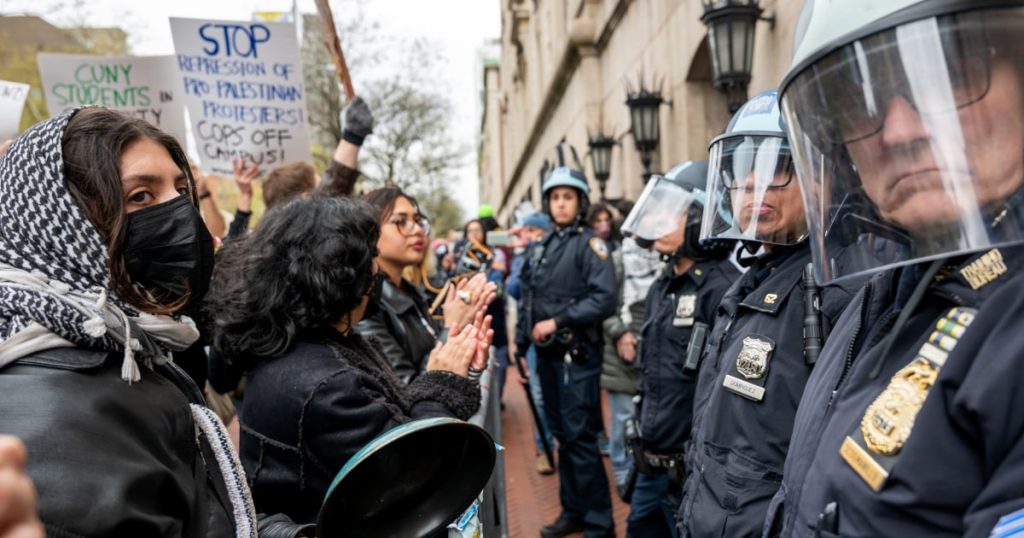As tensions rise on and near the Columbia University campus, calls for action to protect students have been increasing. Reports of antisemitic and offensive statements and actions in the area have sparked concern, leading to a recommendation from a campus rabbi for Jewish students to return home due to safety issues. The protest, which focused on rights to free speech and student safety, prompted Columbia President Nemat “Minouche” Shafik to announce virtual classes and discussions to address the crisis. White House Press Secretary Andrew Bates condemned any violence or threats against Jewish students, stating that it was antisemitic and dangerous.
Protesters on and around Columbia’s campus have been advocating for divestment from companies connected to Israel and condemning Israel’s bombardment of Gaza. While some groups have distanced themselves from unlawful behavior and rhetoric, concerns about safety for Jewish students have risen. Rabbi Elie Buechler recommended students leave campus due to extreme antisemitism and signs of anarchy. The Columbia Jewish Alumni Association also voiced concerns about a hostile environment for Jewish students, urging the university to enforce rules against protests and harassment.
In response to safety concerns, Columbia University announced plans to increase security by hiring additional personnel, improving ID checks, and enhancing security measures during upcoming events. While some students consider leaving campus as a safety measure, others view staying as an act of defiance against those promoting hate and violence. Protests on campus have shifted from political statements to incitements of violence and hatred, leading Columbia/Barnard Hillel to call for an end to campus protests that violate university rules and pose a threat to students’ safety.
The situation at Columbia University has escalated with the arrest of 113 individuals involved in pro-Palestinian protests that violated university rules. As tension rises, voices from various political backgrounds have weighed in, with some calling for President Shafik’s resignation and others condemning the protests as antisemitic, unconscionable, and dangerous. Calls for action to address the safety of Jewish students and prevent further escalation have intensified, with both campus and city officials expressing commitment to investigating and enforcing the law as needed.
The unrest at Columbia University is part of a broader trend of American universities becoming sites of discord amid the Israel-Hamas conflict. Solidarity protests and encampments have emerged at other universities, including the New School, Yale, Tufts, MIT, and Emerson. These actions aim to show support for pro-Palestinian voices and advocate for divestment from companies with connections to the Israeli military. University officials are engaging with students to address concerns and maintain a safe environment for all members of the community amidst growing tensions.


